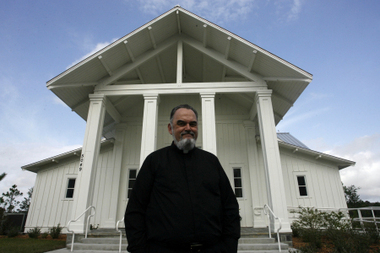The tee shirts should start rolling into stores any day now, after a new study found that when people ask “WWJD?”, they’re really asking a different question:
For many religious people, the popular question “What would Jesus do?” is essentially the same as “What would I do?” That’s the message from an intriguing and controversial new study by Nicholas Epley from the University of Chicago. Through a combination of surveys, psychological manipulation and brain-scanning, he has found that when religious Americans try to infer the will of God, they mainly draw on their own personal beliefs.
Psychological studies have found that people are always a tad egocentric when considering other people’s mindsets. They use their own beliefs as a starting point, which colours their final conclusions. Epley found that the same process happens, and then some, when people try and divine the mind of God. Their opinions on God’s attitudes on important social issues closely mirror their own beliefs. If their own attitudes change, so do their perceptions of what God thinks. They even use the same parts of their brain when considering God’s will and their own opinions.
Religion provides a moral compass for many people around the world, colouring their views on everything from martyrdom to abortion to homosexuality. But Epley’s research calls the worth of this counsel into question, for it suggests that inferring the will of God sets the moral compass to whatever direction we ourselves are facing. He says, “Intuiting God’s beliefs on important issues may not produce an independent guide, but may instead serve as an echo chamber to validate and justify one’s own beliefs.”

